Faraday Future unveils electric car to rival Tesla's – but its "driverless valet" malfunctions during CES demo
An American startup is taking on electric car supremo Tesla with this intelligent electric vehicle unveiled at CES 2017, but was left red-faced when one of its main features failed to work during a demo.
The FF 91 is set to become the first car in production for Faraday Future, a company that only launched in 2014.
The vehicle's impressive list of features include a record-breaking acceleration time, super-fast charging, and driverless parking functionality.
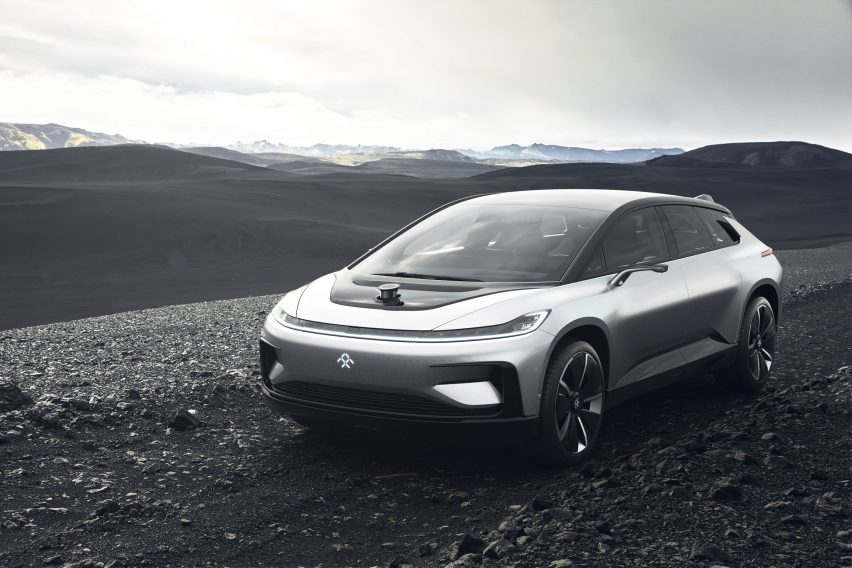
This last feature is supposed to allow the car to autonomously park itself after the driver has exited, using a complex system of high definition cameras, long- and short-range radars, and ultrasonic sensors.
But the team were left embarrassed when the system malfunctioned during the launch presentation at CES last night. After pressing the park button on a handheld remote, the car failed to move, according to Mail Online.
The company's vice president of engineering, Nick Sampson, responded with the comment: "As a new baby, she's very, very timid."
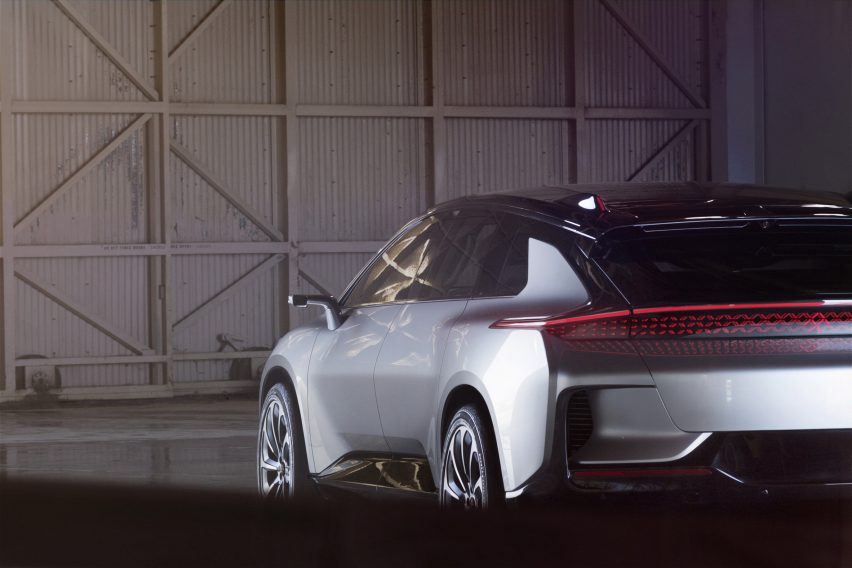
Described by Faraday Future as "a new species", the FF 91 offers a faster acceleration than Tesla's Model S. The company claims it goes from 0 to 60 miles per hour in 2.39 seconds, while Tesla's takes 2.5 seconds.
The FF 91's charging speed is also faster than any other car currently on the market, offering the ability to charge at more than 500 miles per hour. It claims to go up from 50 per cent to fully charged in 4.5 hours.
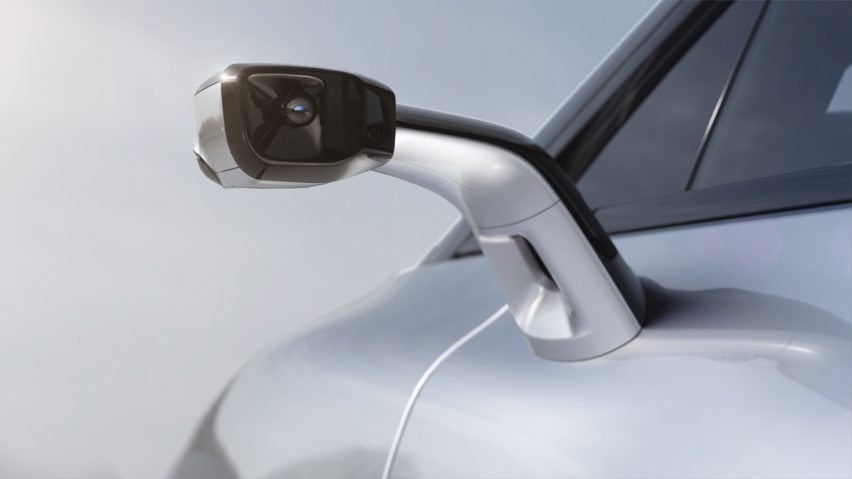
Other boasts include smart dimming glass technology, which allows drivers to vary their privacy and shade, and a flexible powertrain system – the mechanism that transmits the drive from the engine to the car's axle – which allows for improved safety and handling.
"FF 91 represents a bold new breed of electric mobility that combines supercar performance, precise handling, the comfort of an ultra-luxury passenger vehicle, and a unique collection of intelligent internet features," said Faraday Future.
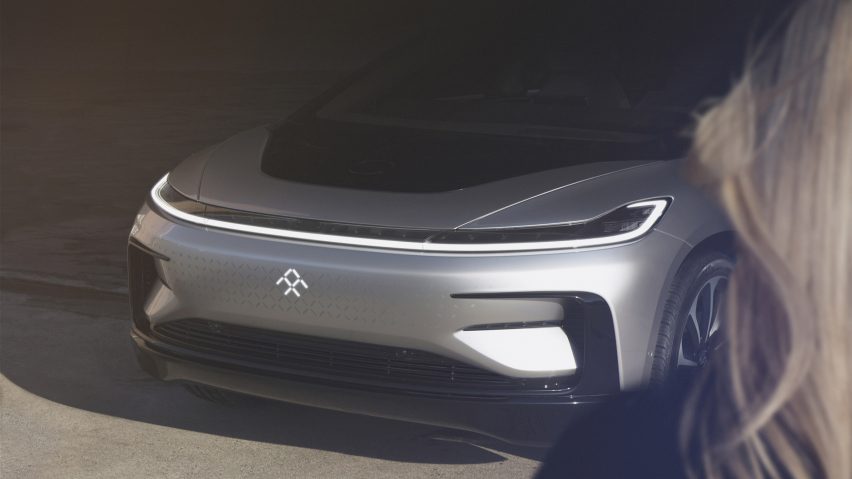
The car's exterior is designed to maximise aerodynamics, with a smooth front and a more angular rear.
"The sleek, rounded front fascia and edgy, angular rear create a striking form that improves aerodynamic efficiency to increase range," said the company.
"The signature UFO line that runs around the mid-section of the vehicle provides FF 91 with a unique but simple, stabilising design element. Similarly, the wide stance and long wheelbase deliver a spacious and luxurious interior environment."
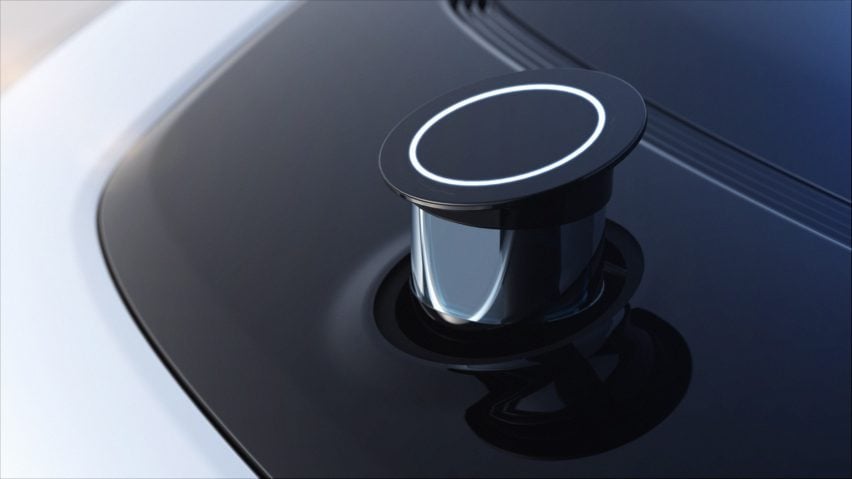
Inside, seating is designed for maximum comfort over short- and long-distance journeys. With the smart dimming glass technology, passengers simply tap on the glass to change the transparency.
"Riding in FF 91, users will feel more rested and energised, even after being stuck in traffic for hours," said Faraday Future.
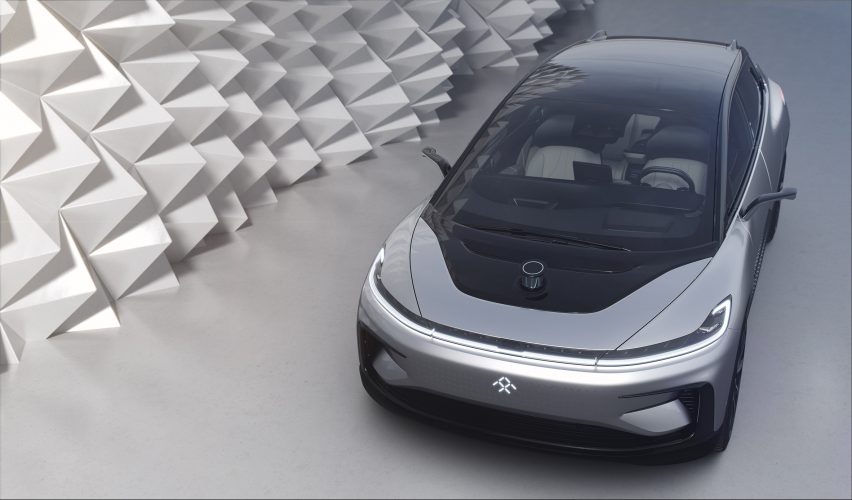
Like Tesla, Faraday Future is based in California, and launched with the aim to offer a "new breed of electric mobility". The company is now accepting reservations for the FF 91, for a fully refundable $5,000 (£4,000).
The car will be on show during the CES event in Las Vegas, which takes place from 5 to 8 January 2017.
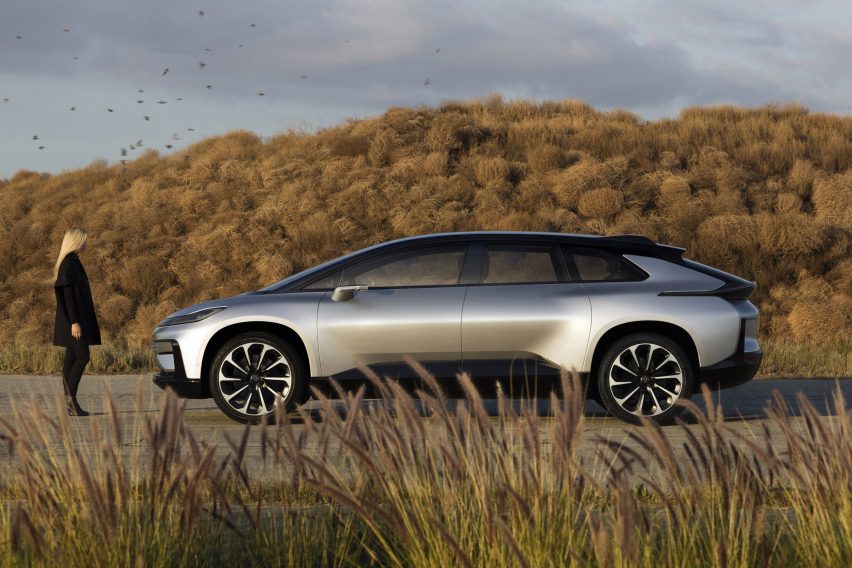
There is some skepticism over whether the car will ever be built, following reports of halted construction work due to unpaid invoices.
Many other major automotive brands are also exploring the future of electric cars with autonomous driving capabilities. Renault unveiled its Treznor concept at the end of 2016, while MINI has envisioned an electric car that is shared by many drivers.